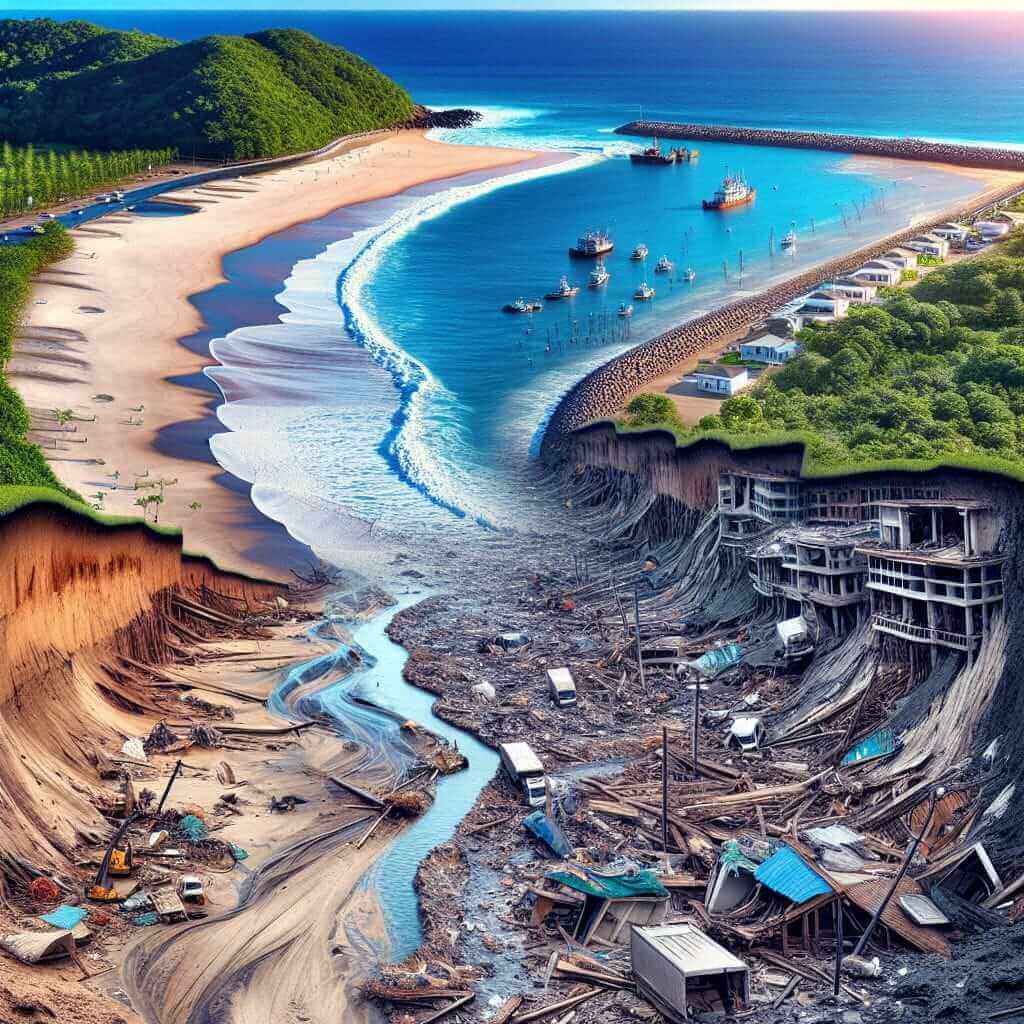Climate change is having a profound impact on our planet, and its effects on water resources are particularly concerning. This is a topic frequently appearing in the IELTS Writing Task 2, often under the “environment” or “global issues” categories. Understanding the intricacies of this issue and how to articulate your thoughts effectively is crucial for achieving a high band score.
Nội dung bài viết
Potential IELTS Writing Task 2 Questions
Here are some potential IELTS Writing Task 2 questions related to climate change and water resources:
- To what extent do you agree or disagree with the statement: “Climate change is the biggest threat to global water security in the 21st century”?
- Climate change is leading to more extreme weather events such as floods and droughts, which significantly impact water resources. What are the solutions to mitigate these challenges?
- Discuss the effects of climate change on water resources and suggest measures that individuals and governments can take to address this issue.
Sample Essay: Question and Analysis
Let’s choose the third question for our sample essay:
Discuss the effects of climate change on water resources and suggest measures that individuals and governments can take to address this issue.
Analysis:
This is a typical “causes and solutions” essay question. You need to provide a clear explanation of how climate change affects water resources and propose practical solutions for both individuals and governments.
Model Essay
Climate change, driven by human activities, is no longer a distant threat but a stark reality. One of its most alarming consequences is the severe strain it places on our planet’s water resources. This essay will discuss the detrimental effects of climate change on water availability and quality, followed by potential measures that individuals and governments can implement to mitigate this pressing issue.
The escalating global temperatures due to greenhouse gas emissions are disrupting the delicate balance of the water cycle. This disruption manifests in several ways. Firstly, rising temperatures accelerate the rate of evaporation, leading to increased water scarcity, particularly in arid and semi-arid regions. This scarcity can devastate agriculture, increase the risk of wildfires, and displace communities reliant on predictable water sources. Secondly, altered precipitation patterns result in more frequent and intense extreme weather events. While some areas experience devastating floods, others face prolonged droughts, both scenarios posing significant threats to human life, infrastructure, and ecosystems. Furthermore, rising sea levels, driven by melting glaciers and thermal expansion of seawater, contaminate freshwater sources in coastal regions, jeopardizing the availability of potable water for millions.
 Climate Change Water Scarcity
Climate Change Water Scarcity
Addressing this crisis demands a multi-faceted approach. On an individual level, adopting responsible water consumption habits is crucial. This includes simple measures like fixing leaks promptly, installing water-efficient appliances, and practicing mindful water usage in daily activities. Moreover, supporting businesses committed to sustainable water management practices can encourage broader change. Governments, on the other hand, have a responsibility to implement comprehensive policies. Investing in water-efficient infrastructure, such as drought-resistant crops and rainwater harvesting systems, can enhance water security. Furthermore, enacting stricter regulations on industrial water usage and promoting afforestation initiatives can significantly contribute to water conservation efforts. International cooperation is equally important, as climate change transcends national boundaries. Sharing knowledge, technology, and financial resources can accelerate the development and implementation of sustainable water management solutions globally.
In conclusion, climate change poses a grave threat to global water resources, impacting both the quantity and quality of available water. However, by embracing responsible individual actions and enacting decisive governmental policies, we can mitigate the worst consequences and strive towards a future where access to clean and sustainable water remains a reality for all. (Word count: 321)
Notes for Writing
- Structure: This essay follows a clear structure: Introduction, Body Paragraph 1 (Effects), Body Paragraph 2 (Solutions), Conclusion. This logical flow enhances readability and clarity.
- Vocabulary: The essay utilizes a range of vocabulary related to climate change and water resources. This demonstrates your command of the English language and your ability to discuss complex topics effectively.
- Grammar: Ensure grammatical accuracy throughout your essay. Pay attention to subject-verb agreement, correct tense usage, and punctuation.
Vocabulary Highlights
- Devastate (verb /ˈdev.ə.steɪt/): to destroy or ruin something completely.
- Arid (adjective /ˈær.ɪd/): (of land or a climate) having little or no rain; too dry or barren to support vegetation.
- Escalating (adjective /ˈes.kə.leɪ.tɪŋ/): increasing in intensity, seriousness, etc.
- Manifest (verb /ˈmæn.ɪ.fest/): to show something clearly, through signs or actions.
- Potable (adjective /ˈpoʊ.t̬ə.bəl/): safe to drink.
- Mitigate (verb /ˈmɪt̬.ə.ɡeɪt/): to make something less harmful, unpleasant, or bad.
- Afforestation (noun /ˌæf.ɔːr.ɪˈsteɪ.ʃən/): the act of planting trees on land that has not been forested for a long time.
Conclusion
Understanding the intricate connection between climate change and water resources is crucial for success in the IELTS exam. By familiarizing yourself with relevant vocabulary, practicing structuring your essays effectively, and developing well-supported arguments, you’ll be well-prepared to tackle any question related to this pressing global challenge. Remember to practice writing essays under timed conditions to improve your speed and accuracy.


